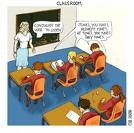












Consider some excellent lesson models for teaching vocabulary, explaining idioms, fostering word consciousness, instruction for English Language Learners, and mnemonic strategies.
Vocabulary is the knowledge of words and word meanings. As Steven Stahl (2005) puts it,
quot;Vocabulary knowledge is knowledge; the knowledge of a word not only implies a definition, but also implies how that word fits into the world." Vocabulary knowledge is not something that can ever be fully mastered; it is something that expands and deepens over the course of a lifetime. Instruction in vocabulary involves far more than looking up words in a dictionary and using the words in a sentence. Vocabulary is acquired incidentally through indirect exposure to words and intentionally through explicit instruction in specific words and word-learning strategies.
According to Michael Graves (2000), there are four components of an effective vocabulary program:
wide or extensive independent reading to expand word knowledge
- instruction in specific words to enhance comprehension of texts containing those words
- instruction in independent word-learning strategies, and
- word consciousness and word-play activities to motivate and enhance learning
By: Linda Diamond and Linda Guyton (2006)